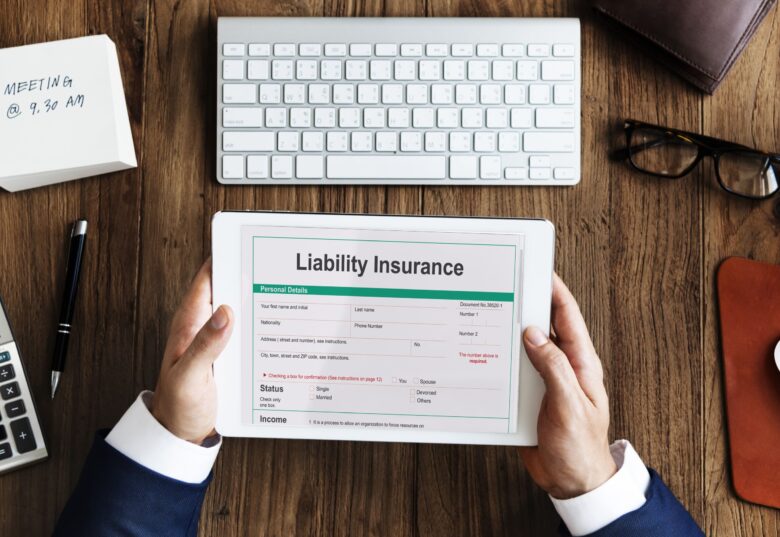No business needs a single form of liability coverage for their operations; therefore there are various types of small business insurance policies to meet all individual business needs.
General liability, product liability and errors and omissions coverages are three of the most sought-after types of small business insurance policies, offering protection from common third-party litigation risks.
1. Property Damage
No matter how careful a business may be, accidents and mishaps will invariably arise. When they do, it’s essential that it has sufficient insurance coverage in place to avoid financial hardship in the form of legal fees, settlements or judgments that threaten cash flow. Liability insurance provides this safety net while commercial general liability (CGL) policies protect from claims alleging bodily injury, property damage, personal and advertising injury among other claims.
CGL policies also help safeguard a company’s assets by covering repairs or replacement for any property damaged or stolen that falls within their care, including items not owned by them but still within their custody. Such protection can often be found in business owner’s policies (BOPs) available online through insurers like Chubb.
At CGL policies aren’t universal; therefore it is wise to conduct your own research to find the appropriate provider and policy. Some insurers specialize in certain industries or types of businesses and may offer lower premiums than other similar coverage options. A licensed agent can assist in helping determine appropriate coverage limits and coverage types to fit the specific needs of your unique business.
2. Bodily Injury
General liability’s bodily injury coverage protects your business if it is sued over physical injuries sustained on its premises or as a result of its operations, covering medical costs, lost services, and compensation for death or disability claims against it. Should damage occur from products manufactured by your business then separate product liability policies provide cover.
Your general liability policy can be tailored to address specific concerns by adding endorsements tailored specifically for specific risks. For instance, liquor liability coverage protects you from lawsuits brought about by serving or selling alcohol while cyber liability coverage shields against unauthorised access and data theft. Other possible add-ons could be contractors installation coverage as well as tools & equipment coverage and workers’ compensation insurance.
Liability insurance may not be mandatory by law, but it remains one of the most essential types of small business coverage. Liability coverage helps to cushion any financial fallout of lawsuits while protecting your company’s reputation from costly legal fees. NerdWallet recommends all businesses carry this essential form of protection – particularly smaller firms more susceptible to legal claims from third parties. Choosing an effective commercial general liability (CGL) policy could make all the difference for its future success.
3. Advertising Injury
Small business owners face many legal risks. Some, like property damage, are obvious while others such as defamation or copyright infringement are less so. Selecting appropriate general liability limits to safeguard your business against potentially costly claims is key for protecting its future success.
Small businesses should carry commercial general liability (CGL). CGL protects them against claims alleging bodily injury, property damage and personal/advertising injury caused by their business, while covering legal defense expenses including settlement and judgment without jeopardizing its financial stability.
Amanda owns a local hardware store. If one of her customers slips and falls on her wet floor despite posting “Caution! Wet Floor” signs, this could result in an expensive lawsuit; biBerk offers CGL policies designed to cover legal fees without jeopardizing financial stability of businesses like Amanda’s.
Importantly, while general commercial liability provides essential protection, it doesn’t cover professional errors or worker injuries – that kind of coverage comes through workers’ compensation or commercial property insurance policies. If you offer services, additional consideration should be given to purchasing errors and omissions coverage or professional liability coverage if applicable.
4. Personal Injury
Accidental injuries are costly and can severely compromise a business’s reputation. When customers fall and require medical treatment at your store, for example, costs can quickly spiral out of control and quickly deplete its finances. That is why so many companies opt to obtain general liability insurance – choosing an adequate policy with appropriate limits that match up to both business size and type as well as any applicable endorsements is key in protecting its finances.
Add-ons can provide coverage for specific incidents. For instance, liquor liability endorsement may offer protection in case someone is injured while drinking alcohol at your establishment. Likewise, product liability add-ons provide liability coverage against damages caused by products manufactured, sold or transported by your business. Finally, contractors installation, tools & equipment add-ons offer property protection during transit or storage operations, construction projects or installations.
Litigation is an inevitable part of business life, and even minor lawsuits can cost thousands. That’s why having the appropriate amount of commercial general liability (CGL) coverage for your business is essential to its long-term survival and to safeguarding financial health and avoiding costly lawsuits that threaten to derail it altogether. From customers slipping on your wet floor or professional mistakes causing injury to clients – having sufficient CGL protection helps safeguard you and protect your future as an entrepreneur.




